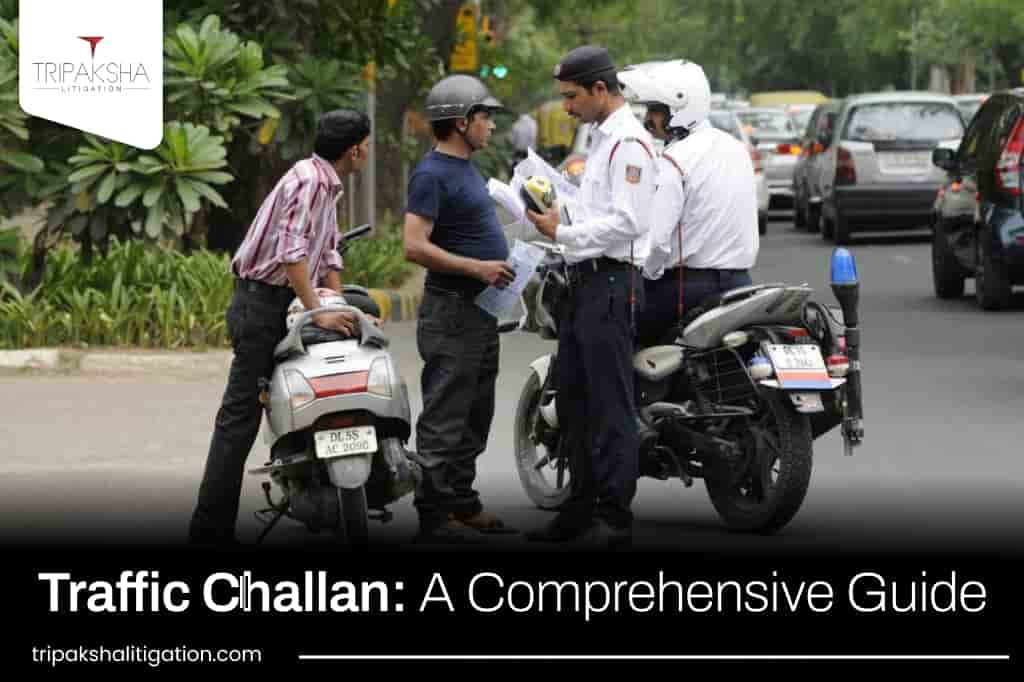Navigating the bustling streets can be challenging, and traffic violations are a common occurrence. Traffic Police, in their efforts to maintain order and safety on the roads, have a well-defined system for issuing traffic challans. This comprehensive guide aims to provide all the necessary information about traffic challans, including the types of violations, the penalties involved, and the process for paying or contesting a challan.
What is a Traffic Challan?
A traffic challan is an official notice issued by the traffic police to a motorist who has violated traffic laws. It serves as a penalty and a record of the offense. the traffic police utilize both on-ground enforcement and electronic surveillance to monitor and manage traffic violations.
Common Traffic Violations and Penalties
Traffic Police enforce a wide range of traffic rules, and the penalties for violations are specified under the Motor Vehicles Act, 1988, and its amendments. Some common traffic violations and their corresponding penalties include:
- Over-Speeding: Fine: ₹1,000 for Light Motor Vehicles (LMVs), ₹2,000 for Medium Goods Vehicles (MGVs) and Heavy Goods Vehicles (HGVs).
- Red Light Jumping: Fine: ₹1,000 for first offense, ₹2,000 for subsequent offenses.
- Driving Without a License: Fine: ₹5,000.
- Drunken Driving: Fine: ₹10,000 and/or imprisonment of up to 6 months for the first offense, ₹15,000 and/or imprisonment of up to 2 years for subsequent offenses.
- Not Wearing a Helmet or Seatbelt: Fine: ₹1,000.
- Using a Mobile Phone While Driving: Fine: ₹5,000.
- Driving Without Insurance: Fine: ₹2,000 and/or imprisonment of up to 3 months.
- Polluting Vehicle: Fine: ₹10,000.
These penalties aim to deter individuals from committing traffic violations and ensure safer roads for everyone.
How to Check for Traffic Challans
Traffic Police provide various methods for motorists to check if they have any pending challans:
- Online Portal: Visit the officialTraffic Police website and navigate to the ‘Check Challan Status’ section. Enter your vehicle registration number or driving license number to view any pending challans.
- Parivahan Portal: The Ministry of Road Transport and Highways’ Parivahan website also allows you to check challan status using your vehicle number or driving license details.
- SMS Service: Send an SMS with the text ‘CHK <Vehicle Number>’ to the designated number provided by the Traffic Police.
How to Pay Traffic Challans
Once you have identified a pending challan, you can pay it through several convenient methods:
- Online Payment:
- Visit the Traffic Police website or the Parivahan portal.
- Enter your challan or vehicle details.
- Choose a payment method (credit card, debit card, net banking, etc.) and complete the transaction.
- Mobile Apps:
- Download the ‘Traffic Police’ or ‘Parivahan’ app.
- Follow the steps to check and pay your challan.
- Offline Payment:
- Visit any traffic police station.
- Provide your challan or vehicle details and make the payment in cash or through other accepted methods.
Contesting a Traffic Challan
If you believe a traffic challan has been issued unfairly, you have the right to contest it:
- Submit a Dispute Online: On Traffic Police website, you can find the option to dispute a challan. Provide the necessary details and any supporting evidence to substantiate your claim.
- Visit the Traffic Court: You can appear before a traffic court or Lok Adalat to contest the challan. Ensure you carry all relevant documents and evidence to present your case.
- Legal Representation: If the matter is complex, consider seeking legal advice or representation to navigate the dispute process effectively.
Conclusion
Understanding the traffic challan system in is crucial for all motorists. By being aware of the common violations, penalties, and the process for checking and paying challans, drivers can avoid unnecessary fines and contribute to safer roads. Additionally, knowing how to contest a challan ensures that you can address any wrongful penalties appropriately. Stay informed, follow traffic rules, and drive safely.

